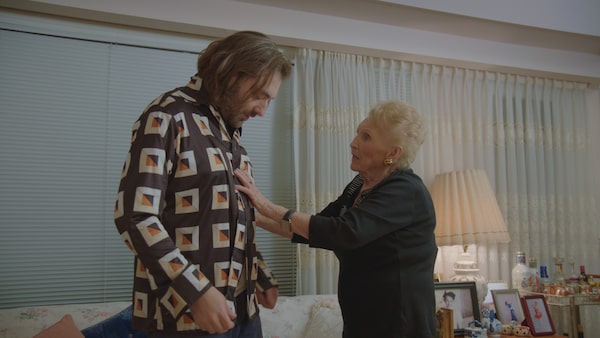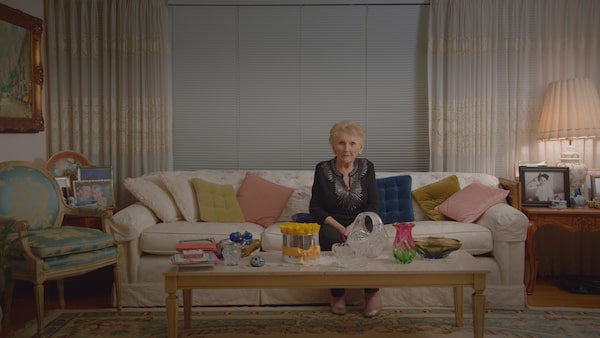
Filmmaker Daniel Schubert, left, tells the story of his grandmother, who survived the Auschwitz concentration camp, in his new documentary Martha.
Ask director Daniel Schubert about the impetus for his new film, and he flashes back to the violent 2017 rally in Charlottesville, Va., with its Neo-Nazis and white supremacists. Three-and-a-half years later, anti-Semitic attire spotted on rioters in the attack on the U.S. Capitol offered yet more proof to Schubert that his film was needed more than ever.
“I felt like it was my duty, basically,” he says.
Schubert’s short film is a deeply personal one, documenting a family story.
His grandmother, Martha Katz, is a survivor of the Auschwitz concentration camp operated by Nazi Germany in occupied Poland during the Holocaust. Schubert, who was born in Winnipeg and lives in Vancouver, has wanted to record her story for years. After hearing the chants of “Jews will not replace us” in Charlottesville, he got to work. He was also alarmed by surveys showing an ignorance of the Holocaust, especially among young people.
“My purpose in telling her story was to raise awareness but also show the resilience of my grandmother, who at 91 is still as tough as ever after going through what can only be described as unimaginable,” says the 36-year-old Schubert.
So he travelled to Los Angeles, where his grandmother lives, to ask her some hard questions and revisit her excruciating history. She and four siblings survived the Holocaust, but her parents and two little brothers did not. Her father, she later learned, died right after he was liberated.
“I don’t know how I’m alive,” Katz says in Martha, Schubert’s 21-minute film. Produced by the National Film Board of Canada, it will be released on the NFB’s website and YouTube channel (geo-blocked to Canada) on Jan. 27, International Holocaust Remembrance Day – and the 76th anniversary of the liberation of Auschwitz, where more than 1.1 million people lost their lives.
In the film, we see Katz teaching her daughter, Schubert’s mother, how to make cabbage rolls as her own mother used to do in the old country, Czechoslovakia. They were deported to the concentration camp when Martha was 14. “We would never go back home,” she says in the film.
The notorious Nazi Josef Mengele, known as the “Angel of Death,” played a key role in her survival – a shocking story she recounts for her grandson.
Then Katz and Schubert visit a Holocaust museum, where she hears a distressing piece of information about how long, in some instances, the gas chamber process took from beginning to end.
“That was too long,” she says. “Too long for my mother.”

Martha Katz was taken to the camp from her home in what was then Czechoslovakia when she was 14.
In that moment, Schubert quickly reverted from filmmaker to grandson.
“I felt very sad for her – and I felt guilty that I put her in that position,” he says.
In an interview shortly after the Jan. 6 riot, Schubert mentioned the “Camp Auschwitz” sweatshirt one of the Donald Trump supporters was wearing and other offensive Holocaust-related T-shirts spotted in the unruly crowd.
“It’s so horrible that it’s comical,” Schubert says. “Why would someone do that? It’s something I’ll never understand.”
He says he’s concerned about a new wave of anti-Semitism spreading in online echo chambers such as YouTube and Twitter.
“I think that new art is needed more than ever now, because if those [surveys] are true – that young people don’t know what [the Holocaust] is – of course we need new art, and we need new voices to come out.”
Schubert says he hopes his film finds its way into the school system – and along with it, his grandmother and her story. “Maybe her sense of humour will make a difference on a kid,” he says. “Maybe it’s more relatable than textbooks.”
Plan your screen time with the weekly What to Watch newsletter. Sign up today.